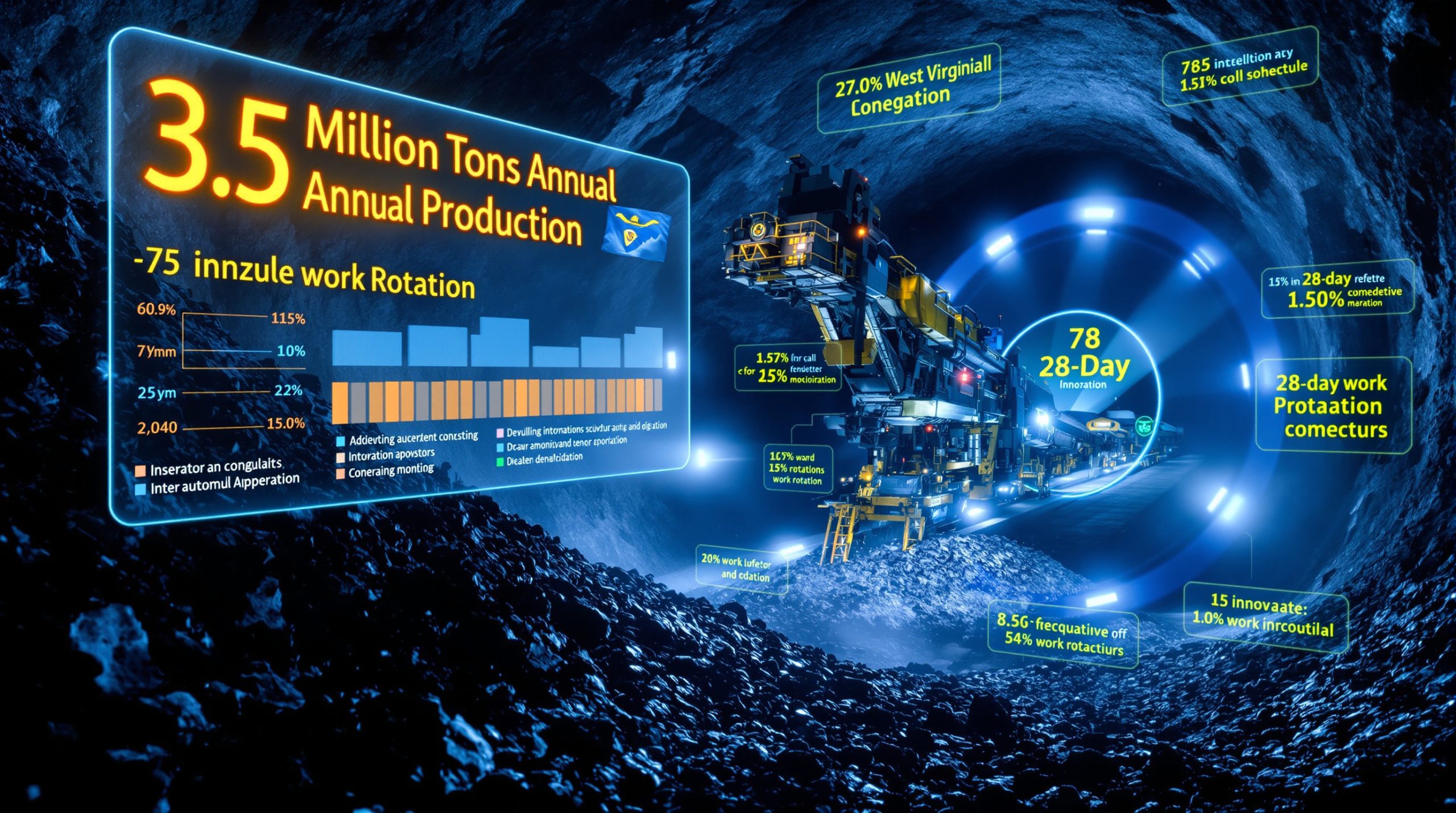Understanding the Current Crisis in Global Copper Processing Economics
The copper smelting industry faces an unprecedented challenge as unsustainable copper processing fees collapse to record-low levels worldwide. This dramatic shift threatens the fundamental economics of copper refining operations, creating ripple effects that extend far beyond individual facilities to entire national supply chains.
Treatment and refining charges, commonly known as TC/RCs, represent fees that miners traditionally pay to smelters when selling copper concentrate for processing into refined metal. These charges have historically served as a crucial revenue stream for smelting operations, enabling facilities to cover operational costs while maintaining profitable margins.
Recent market developments have fundamentally disrupted this established system. In June 2025, some Chinese smelters agreed to process copper concentrate for Chilean mining company Antofagasta without charging any fees whatsoever. Even more concerning, certain spot market transactions have witnessed negative TC/RC rates, effectively forcing smelters to pay miners for the privilege of processing their materials.
How Copper Processing Fees Function in Normal Markets
The traditional copper processing fee structure operates through two primary components that work together to generate smelter revenue. Treatment charges represent the initial fees for processing raw copper concentrate, while refining charges cover the costs associated with producing final metal products suitable for industrial applications.
Under normal market conditions, these fees serve multiple critical functions:
• Equipment maintenance and upgrades
• Environmental compliance and monitoring
• Labor costs and operational expenses
• Energy consumption requirements
• Regulatory reporting and documentation
The current market disruption has completely inverted this revenue model. Furthermore, zero-fee agreements have become increasingly common, with some arrangements requiring smelters to provide payment incentives to secure concentrate supplies. This fundamental shift has compromised the operational viability of numerous processing facilities across multiple continents.
Market Forces Behind the Fee Collapse
Multiple interconnected factors have contributed to the dramatic decline in copper processing fees throughout 2025. The primary driver stems from a significant supply-demand imbalance affecting global concentrate availability and processing capacity distribution.
Tight concentrate supply from mining operations has coincided with rapid expansion of Chinese smelting capacity, creating oversupply conditions in the processing sector. Consequently, this imbalance has intensified competitive pressure among smelters, forcing facilities to accept increasingly unfavourable terms to secure necessary raw materials.
Geographic concentration presents additional risks to market stability. Heavy reliance on specific regional suppliers has created strategic vulnerabilities in global supply chains, limiting diversification options for processing facilities. For instance, experts providing copper price insights have highlighted how these concentration patterns carry significant geopolitical implications for resource security planning.
The expansion of Chinese smelting capacity has fundamentally altered global market dynamics. As new facilities come online, existing operations in other regions face intensified competition for limited concentrate supplies, driving down processing fees to unsustainable levels. Moreover, analysts examining the global copper supply forecast indicate these trends will continue throughout 2025.
International Government Response to Unsustainable Processing Fees
Three major copper-processing nations have taken unprecedented coordinated action to address the crisis in processing fee economics. Japan, Spain, and South Korea issued a joint statement warning about unsustainable conditions in October 2025, expressing deep concerns about the deterioration of treatment and refining charges across global markets.
The trilateral statement emerged from an online meeting between industry ministries from all three countries, timing their announcement to coincide with LME Week in London. Naoki Kobayashi, deputy director of Japan's mineral resources department, indicated that the three nations wanted to raise awareness of the issue during this significant metals industry gathering.
Government Concerns About Market Sustainability
The joint ministerial statement highlighted several critical issues threatening long-term market stability:
• Widespread reassessment of smelting operations globally
• Companies indicating intentions to scale down or withdraw from processing
• Prevention of sustainable development alongside mining operations
• Growing dependence on specific countries for processing capacity
These governments emphasised that current market conditions prevent copper smelting from developing sustainably alongside mining in resource-producing countries. They warned that increasing dependence on specific countries for processing capacity creates undesirable conditions for both resource-producing and smelting nations.
Concrete Industry Responses to Unsustainable Conditions
The impact of declining processing fees has already manifested in concrete operational decisions by major industry players. Two of Japan's leading copper smelters have announced significant operational adjustments in response to deteriorating margin conditions.
JX Advanced Metals and Mitsubishi Materials have both indicated plans to scale back copper concentrate processing operations. These decisions directly result from declining fees that have eroded profit margins to unsustainable levels, demonstrating the immediate practical consequences of current market conditions.
Economic Analysis of Processing Fee Sustainability
The economics of copper smelting operations require minimum fee levels to maintain viable business operations. Current market conditions have pushed unsustainable copper processing fees well below sustainable thresholds, creating fundamental challenges for facility operators worldwide.
Smelting operations face substantial fixed costs regardless of processing fee levels. Environmental compliance requirements alone represent significant ongoing expenses, including pollution control equipment, environmental monitoring systems, and waste treatment processes. In addition, energy consumption costs constitute another major expense category, with electricity and fuel requirements remaining constant regardless of revenue levels.
Critical Cost Categories for Smelting Operations:
• Environmental compliance and monitoring systems
• Energy consumption for high-temperature processing
• Equipment maintenance and technological upgrades
• Skilled labour and operational workforce
• Regulatory compliance and reporting requirements
The current negative pricing environment makes it impossible for smelters to cover these essential operational costs through processing fee revenue alone. However, those exploring copper investment insight recognise that this situation has forced many facilities to reassess their long-term viability and consider strategic alternatives.
Long-Term Industry Consequences and Supply Chain Risks
Prolonged periods of unsustainable processing fees threaten to fundamentally reshape global copper processing capacity distribution. The three-government joint statement specifically warned about companies indicating intentions to scale down or withdraw from copper concentrate smelting operations.
Processing capacity reduction in certain regions could create dangerous concentration patterns in global copper refining capabilities. If facilities in Japan, Spain, South Korea, and other traditional processing centres reduce operations significantly, global dependence on Chinese processing capacity could increase substantially.
Investment and Innovation Implications
Unsustainable copper processing fees directly impact industry investment patterns and technological development initiatives. When smelting operations cannot generate adequate revenue from core processing activities, resources available for research and development become severely constrained.
Deferred technology upgrades and reduced innovation investment could have long-lasting effects on industry efficiency and environmental performance. Modern smelting technologies that improve energy efficiency and reduce environmental impact require substantial capital investments that become difficult to justify under current market conditions.
Furthermore, investors considering copper investment strategies must account for these processing challenges when evaluating market opportunities. Similarly, those pursuing diversified copper investments should understand how processing fee dynamics affect overall market stability.
Potential Solutions and Industry Coordination Efforts
The three-government statement outlined their commitment to continued engagement with relevant countries and stakeholders to establish resilient and sustainable copper supply chain structures. This diplomatic approach recognises that addressing unsustainable copper processing fees requires coordinated international cooperation rather than unilateral actions.
Government representatives expressed hope that TC/RCs will return to sustainable levels for copper concentrate trading, indicating their intention to work toward market rebalancing through stakeholder engagement. The timing of their statement during LME Week demonstrates the importance of industry forums for coordination discussions.
Market Mechanism Improvements
Industry participants are exploring various approaches to address current market dysfunction. Long-term contract frameworks could provide more stability than volatile spot market pricing, offering both miners and smelters greater predictability in planning operations.
Risk-sharing arrangements between miners and smelters could help balance the economic pressures currently concentrated entirely on processing facilities. These partnerships might involve profit-sharing mechanisms that account for both commodity price movements and processing cost fluctuations.
Potential Coordination Mechanisms:
• Industry-wide pricing standard development
• Shared infrastructure investment initiatives
• Technology development partnerships
• Best practice sharing programmes
• International cooperation frameworks
Market Outlook and Adaptation Strategies
Current industry responses suggest that market participants are actively adapting to changed conditions rather than waiting for external solutions. The operational adjustments announced by JX Advanced Metals and Mitsubishi Materials represent immediate tactical responses to unsustainable fee levels.
Short-term capacity adjustments may help rebalance supply and demand dynamics in the processing sector. If sufficient smelting capacity is temporarily withdrawn from markets, competitive pressure for concentrate supplies could moderate, potentially allowing processing fees to recover toward sustainable levels.
However, the fundamental challenge of Chinese smelting capacity expansion continues to influence market dynamics. Reuters reports that until supply-demand balance improves substantially, processing facilities outside China may continue facing pressure to accept unfavourable terms or reduce operations.
Strategic Considerations for Industry Stakeholders
The current crisis highlights the importance of supply chain diversification and strategic planning for both mining and smelting companies. Excessive dependence on any single regional processing capacity creates vulnerabilities that current market conditions have clearly demonstrated.
Mining companies may need to consider longer-term relationships with processing facilities that provide greater stability than purely spot market transactions. Similarly, smelting operations might explore alternative business models that reduce dependence on processing fees as the primary revenue source.
"The joint statement from Japan, Spain, and South Korea represents a significant diplomatic initiative aimed at addressing market dysfunction through international cooperation and stakeholder engagement, demonstrating the global importance of maintaining sustainable copper processing capabilities."
The resolution of unsustainable copper processing fees will likely require sustained effort from multiple stakeholders, including governments, mining companies, smelting operations, and international industry organisations. The coordinated response from three major processing nations indicates recognition that market-based solutions alone may be insufficient to address current challenges.
Disclaimer: This analysis is based on publicly available information and government statements. Market conditions in commodity processing are subject to rapid change based on supply-demand dynamics, geopolitical factors, and industry developments. Readers should consult current market data and professional analysis for investment or business decisions.
Could This Processing Crisis Create Unprecedented Opportunities for Copper Investors?
Discovery Alert's proprietary Discovery IQ model delivers real-time alerts on significant copper discoveries across the ASX, empowering subscribers to identify actionable opportunities whilst traditional processing markets face unprecedented disruption. Understand why major mineral discoveries can lead to substantial market returns by exploring Discovery Alert's dedicated discoveries page, showcasing historic examples of exceptional outcomes, then begin your 30-day free trial today to position yourself ahead of the market.




